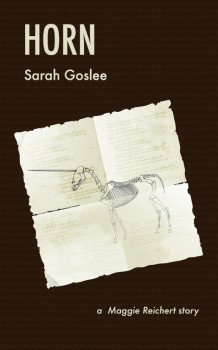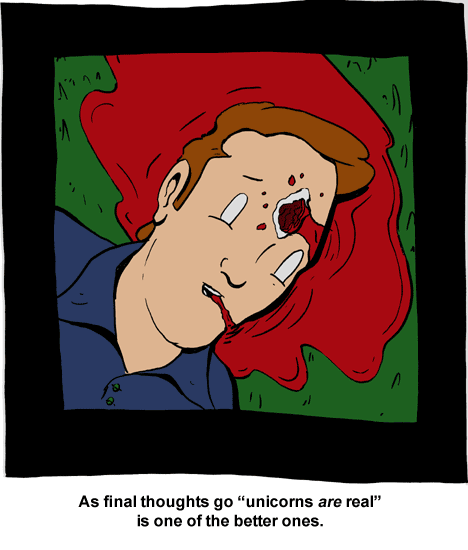“That’s silly.”
“How would you know?” I wanted to scream at him, but managed to choke it back to a more moderate volume. After all those years in children’s programming, I had trouble expressing myself even when anger would be entirely justified. He’d probably cry. I hated that.
And cursing? Forget about it. Though the Sanskrit chants I’d learned for an episode that was never filmed? Those were even better than foul language in English, if said with the right inflection. I didn’t know what they meant anymore, just how the syllables felt rolling off my tongue.
I tried a few, just to see if they felt as good as I remembered. Bird’s feathers tightened around his body. I almost thought they paled from their usual brightness, but that had to have been a trick of the light. Sanskrit chants: even more effective than I’d thought. And since I learned them for an ep, they couldn’t really be anything not G-rated.
I stopped after the first stanza, but he took half a step back anyway. Partners for so all those years, and he still didn’t know me as well as he thought. Assuming we were still partners, something I wasn’t at all certain of.
The newspaper rolled in my trunk, no obstacle to Sanskrit or English, or even Spanish, led with “He’s REAL,” above the fold even. Must have been a slow news day. I waved it in his face.
Bird wiped off a bit of spittle from his head-feathers. Excited snuffling wasn’t the neatest activity, but I didn’t really care. “You didn’t read it. How do I know? Because you’re illiterate, that’s why.” And that would be a bombshell bigger than my reality or lack thereof, now wouldn’t it.
“But everyone has known you were real since 1985. So why does it matter what they said?”
“Bird. Remember the difference between television and reality?”
“Um, yes?” Bird looked at me with wide eyes.
“No you don’t.” I sighed. I explained this at least three times a week, and had for decades. “When the cameras are on, that’s television. It isn’t real. The television people thought I was imaginary, then they thought I was real.”
Bird nodded, his gaze fixed on me.
“The other people, the ones who watch the television? They’ve always thought I was imaginary, that there was a giant fur suit with people in it.” Bird opened his beak to say something, but I kept going. “They think you’re made-up too, that there’s a person inside you who moves your head and hands.”
“There is?” He looked down at himself, eyes even wider. It was a good thing they were permanently attached.
“No, there isn’t.” Talking to Bird was like, well, talking to a bird. “You’re real all the way through, just like me. But people think that you’re a muppet.”
“What’s a muppet?”
“Don’t worry about it. Here, have some candy.” I handed him a bag of wine gums, a reliable distraction. Really, why would Bird care what the world thought of him? He had a safe, secure life and made people happy.
I did too, but I was bored. I knew better than to go out for a walk; that’s how the tabloid got those photos. Last time they claimed to have evidence of Bigfoot. I got into a fair bit of trouble for leaving the compound. That’s when they added human security guards. It still wasn’t impossible to get out, even at my size, but I saved it for occasions when I might start smashing people if I didn’t get away for a while. Use the escape route too many times, and it was bound to be noticed.
The guards hadn’t caught on, but the paparazzi had. I was going to be stuck inside for years. Once in a great while I got a vacation: the producers put me in a semi and hauled me off into the wilderness for a week or two. Which wouldn’t be so bad, if a whole entourage didn’t have to come with me. Hello? Mammoth? I can handle a few days in the woods.
Maybe they’re just afraid I won’t come back. Nobody else is as good as I am at getting Bird to do things.
Anyway, no unauthorized expeditions. The fuss would die down, even assuming it spread past the second-rate newspaper that ran the photos. I’d keep doing my thing, and I’d keep Bird doing his, and everyone would be happy, except me.
At least there was still twitter.
This was twitter flash from a few weeks ago.
I’d solicited ideas then bailed on writing the story until tonight. Thanks to @random_michelle (A.S.’s thoughts about being outed as a real creature (rather than imaginary), @qitou (Sanskrit chants), and @J00licious )bags of wine gums, and people watching on the Tube).


